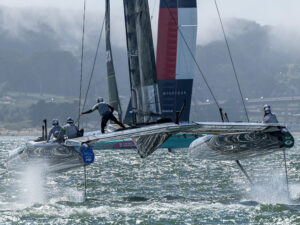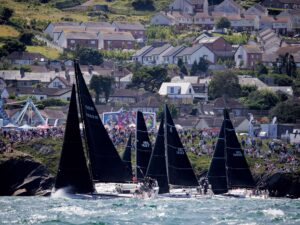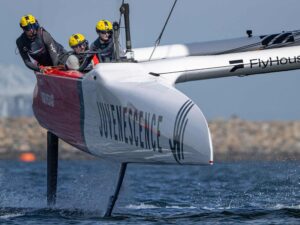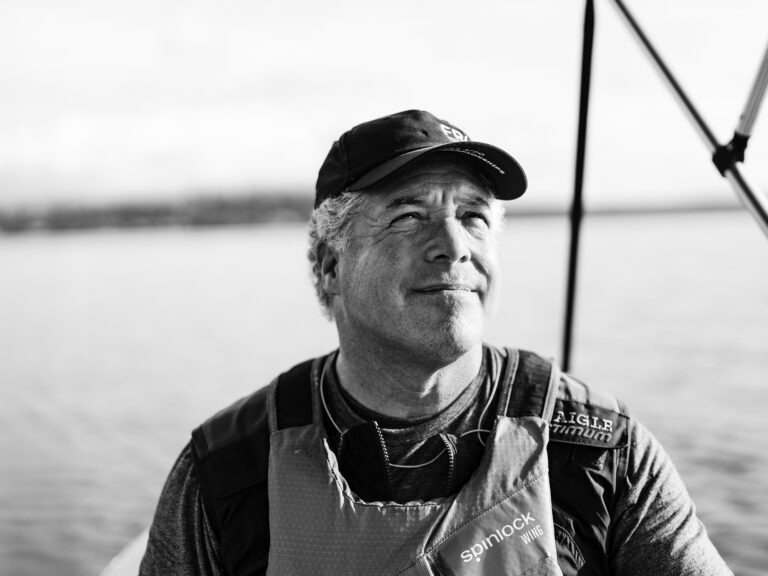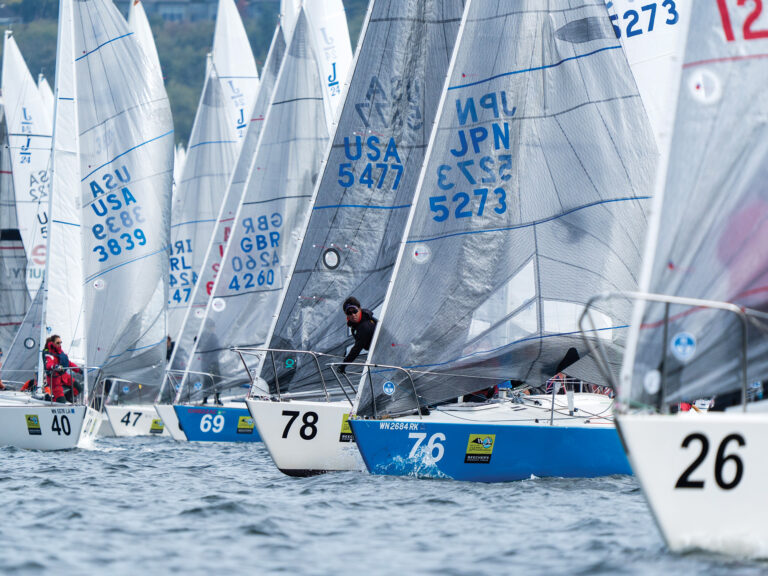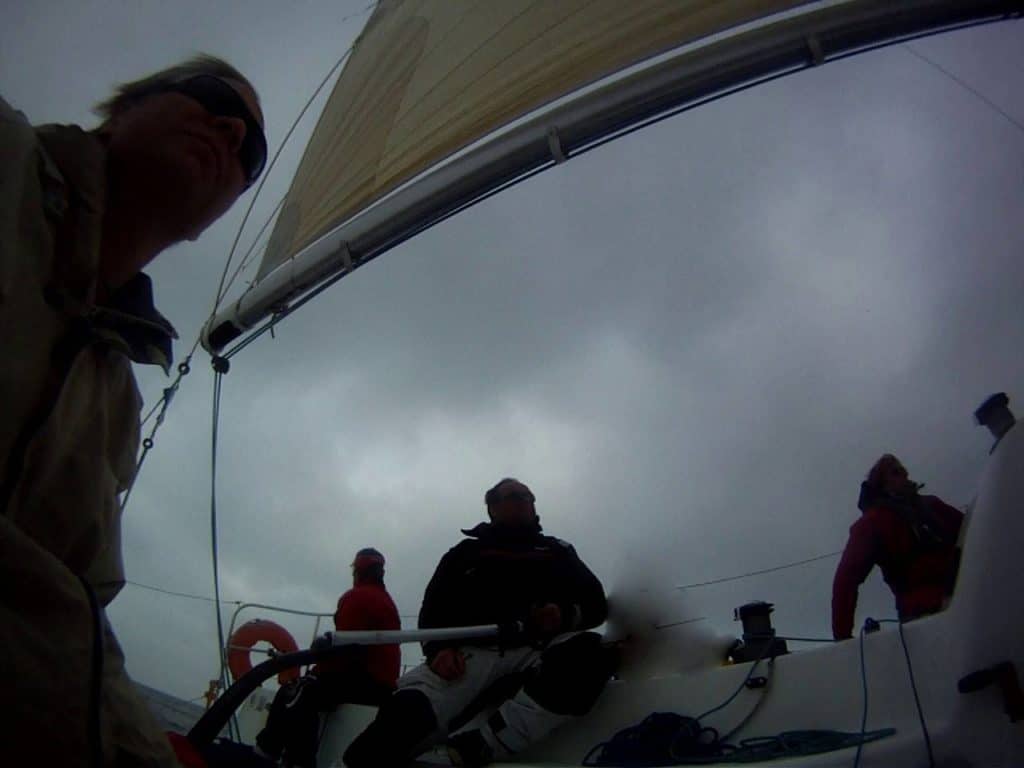
Challenges Des Mairies
France is known around the world for the Vendée Globe, Route du Rhum, and other offshore races. But these fabled contests hardly reflect what the vast majority of those who sail competitively in France experience.
In most ways, French regattas are very similar to those in the United States, with the use of the IRC system and international rules, but racing in small regattas in France allows one to experience, for a lack of a better word, something that is very French, which you won’t find anywhere else in the world.
While I have taken part in many small amateur races in France before, I realized just how novel a French regatta could be when I recently participated in the Challenges Des Mairies at the Brittany coastal town of Port de Piriac sur Mer.
The genesis of the Challenges Des Mairies traces back to representatives from the very Brittany port town of Concarneau and the fabled Glénans sailing school in 1997. Their idea was to bring together elected town officials and members of different communities from around France in one place where they could share the experience of competing in a regatta. As a way to promote the exchange between the participants, each of the teams is traditionally asked to prepare a sample of a food or drink from their region for a buffet dinner held during the regatta. The gastronomic bonus in itself is enough to make the Challenges Des Mairies a must-do instead of just one of the more fun regattas to sail in France.
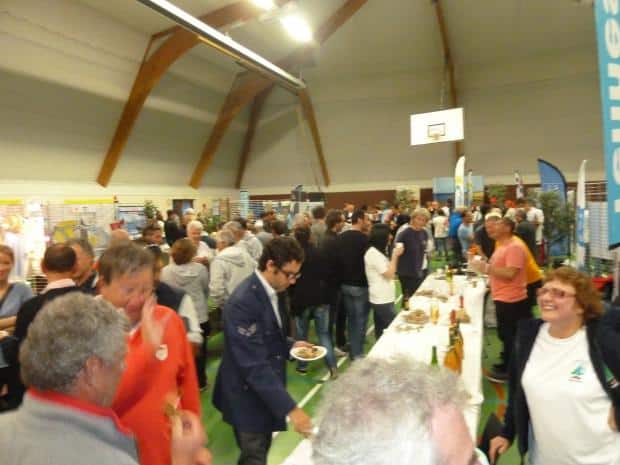
Photo: Christophe Louvard
St. Malo and the other 17 teams took part in a food-tasting event held at the local banquet hall.
As an American who belongs to the St. Malo sailing club, I was the odd man out. My strong American accent betrays me as soon as I open my mouth to speak French, which hardly makes me a representative of St. Malo, or anywhere else in France for that matter. Also, because there are so many U.K. citizens who live in France, my accent is often taken for that of a Brit. This dynamic became apparent on the day I signed up for the race in St. Malo. A man in the St. Malo sailing club office who worked for the local township noticed my accent and said something like: “So we have an Englishman representing St. Malo? How about that?”
I met his gaze and retorted in French: “I am not British and have some Celtic ancestors, which probably makes me more Breton than you are, dude.”
My fellow teammates from St. Malo were friendlier than the man in the office. Actually, they were maybe too friendly. When I showed up at the St. Malo team’s quarters toward midnight at Port de Piriac sur Mer after getting lost driving somewhere in the middle of Brittany in the rain, I ended up on the receiving end of some hazing. My teammates’ aperitif had lasted through dinner, and the digestif was being poured when I arrived, shortly before they were getting ready to head to the pub. As far as the rousing I got went, suffice to say the details of that are too embarrassing to describe here.
When it came time to race in the morning, my teammates the next day were certainly more sober and serious than they were the night before. We practiced on the water by doing the usual maneuvers for a couple of hours, such as tacking and jibing, putting up and taking down the spinnaker, and other drills.
At noon, the very French part of the event became apparent again when everything practically shut down. Most of the participants in the regatta took a very long lunch break, especially by U.S. standards. This is something I have experienced before; in France, there is a time for sailing, and at noon, it is time to eat lunch. Generally speaking, people don’t just grab something out of the fridge for lunch or dinner. During a regatta, eating a quick sandwich or hot dog when onshore between races is just frowned upon and is considering unhealthy, which it probably is.
In the St. Malo team’s case, the noon ritual meant going back to the rented house and sitting down to a full course meal, with wine of course, a salad of rice, tomatoes, and other fresh vegetables, steaks and sausages, baguettes, and cheese for dessert, of course. You almost have to drink wine, which in our case was Bordeaux red. I could have done better with a nap after such a satisfying meal, but shortly after lunch was over, we were back on the water.
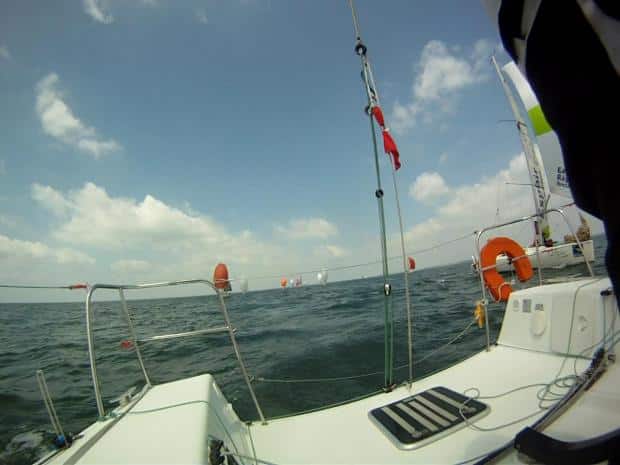
Photo: Bruce Gain
The St. Malo sailing club is very democratic in that everyone gets to take part for at least one of the three days of races, despite the vast differences in skill levels. During the three races in which I participated, I spent a lot of time trimming and grinding the gennaker and spinnaker, like I might have done when I was back in New Jersey sailing on the Raritan Bay. I usually do long-distance sailing, so I appreciated the variety of maneuvers that I would normally not do in an offshore event.
During the last race, the wind gave out from an easy 10 to 12 knots to less than five knots as we sailed upwind as best as we could. Most of the other boats in the fleet put up their spinnakers, despite the 50-degree angle to the wind. We held course without it and got a pleasant surprise as we saw a breeze rippling the water ahead, giving us a boost in speed. As for the other boats ahead of us that had put up their spinnakers, two broached and the other one slowed down enough for us to overtake it.
During the other races that day, we did reasonably well, placing fifth and fourth after a seventh-place run during the first race.
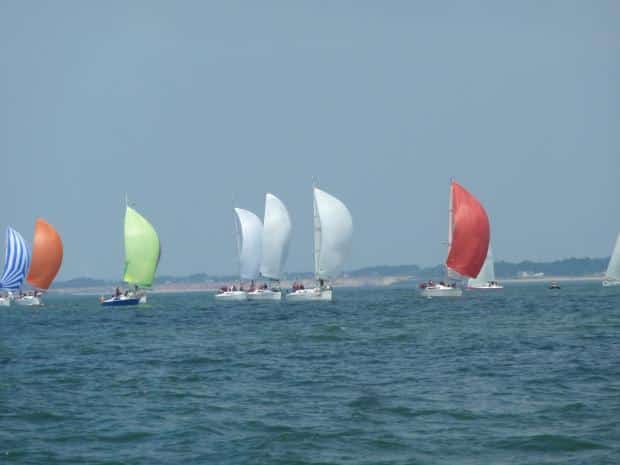
Photo: Christophe Louvard
Even with a relatively poor corrected-time ranking, it is always a pleasant sight to see the rest of the fleet behind you.
That night, there were more gastronomic delights to be had; after a short rest and an aperitif with my teammates, it was time to take part in a succulent food-tasting event held at the local banquet hall. As I mentioned before, each township prepares food that’s a regional specialty. There was such a variety of food choices to sample in one place that describing everything is like detailing the estimated 400 types of cheese made in France today.
I went on an eating tour in the banquet hall without paying much attention to the region from where each dish came and sampled what looked good. And everything I tried was indeed mouthwatering: quail pâté and drumsticks, fresh sautéed and fried sardines, an assortment of olive-based tapenades, galettes, and crepes from St. Malo, topped with melted caramel. To drink, there many wines and ciders available that made each region more than proud.
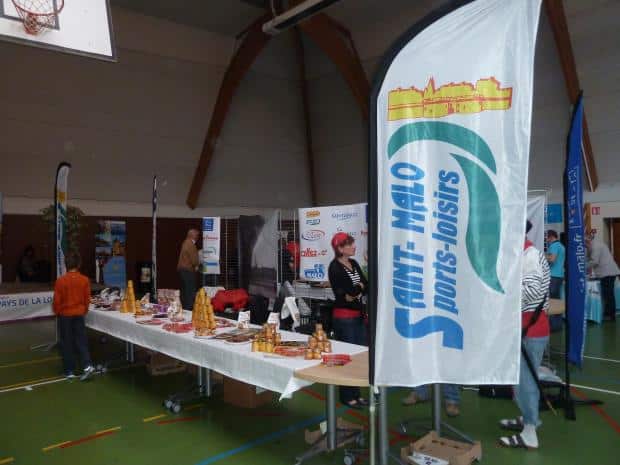
Photo: Christophe Louvard_
__The St. Malo team proudly offered samples of some of its local delicacies._
After an evening of experiencing such culinary delights, reality set in: I learned the next day that the rating of our relatively fast Archambault 35 pushed us down in the corrected-time rankings despite our respectable finishes. For the week, we ended up 17th out of 18 boats in the fleet. We joked that we could have finished first in every race and would have still been in 17th place in the overall corrected-time ranking.
But our poor ranking really didn’t matter that much, at least it didn’t for me. Just the food fest alone was enough to make the trek across Brittany for the regatta more than worth it. I also felt honored as part of the team that represented St. Malo, which no American probably has ever experienced before.

